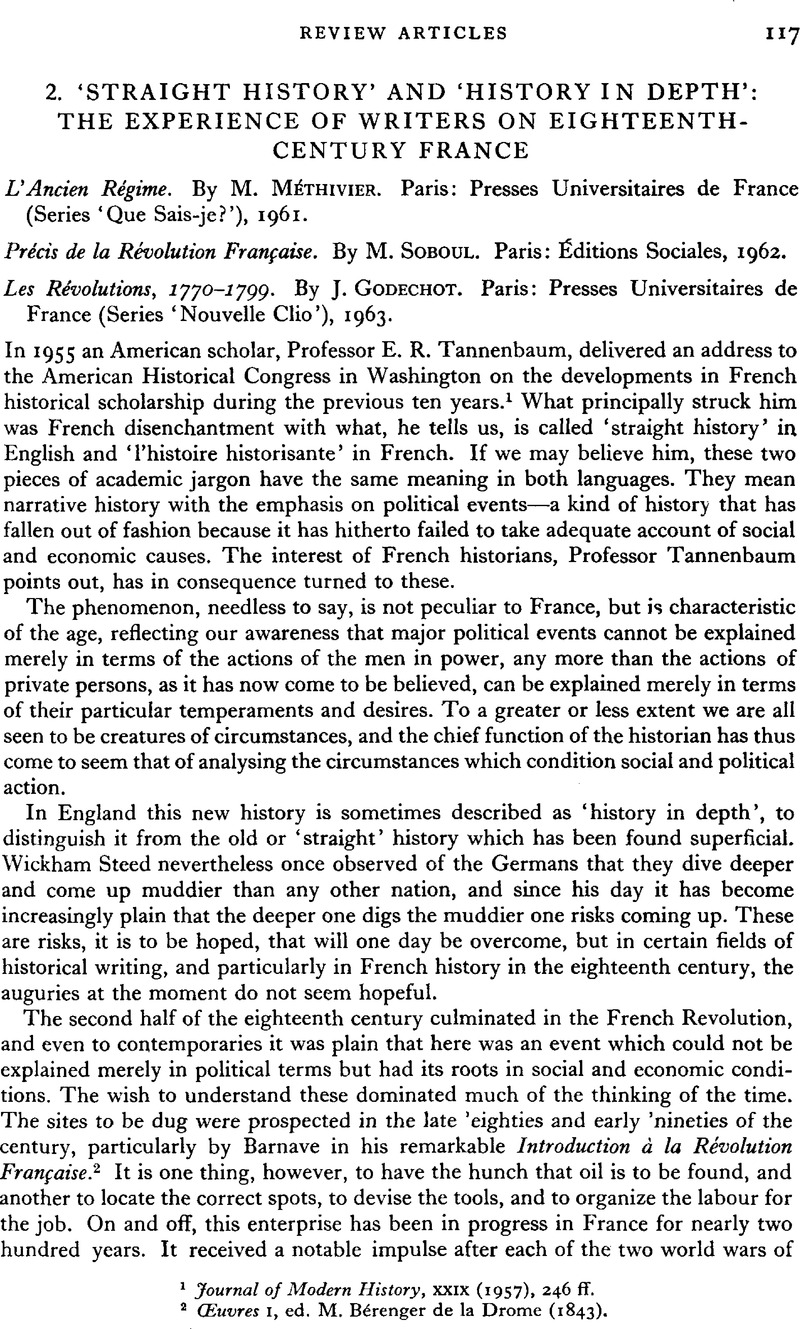No CrossRef data available.
Article contents
2. ‘Straight History’ and ‘History in Depth“: The Experience of Writers on Eighteenth-Century France
Published online by Cambridge University Press: 09 December 2010
Abstract

- Type
- Review Articles
- Information
- Copyright
- Copyright © Cambridge University Press 1965
References
1 Journal of Modern History, XXIX (1957), 246 ff.Google Scholar
2 Œuvres I, ed. Drome, M. Bérenger de la (1843).Google Scholar
3 Préclin, E. and Tapié, V., Clio. Le XVIIIe Siècle, première partie (1952), p. 19.Google Scholar
4 Ibid. p. 106.
5 Op. cit. p. 95.
6 Ibid. p. 101.
7 Ibid. p. 108.
8 Op. cit. p. 85.
9 Ibid.
10 Op. cit. p. 99.
11 Op. cit. p. 23.
12 Op. cit. p. 115.
13 Op. cit. p. 102. He describes them as ‘s’agrégeant à la noblesse’.
14 Op. cit. p. 25.
15 See op. cit. p. 69, where he speaks of the Intendants as having been selected ‘dans les cadres de la haute bourgeoisie’ and as being hated in consequence by the nobility. This is an unusual thesis, for the complaint against the Intendants is generally that, with one or two notable exceptions, they identified themselves with the nobility in their généralités. See Professor Bluche's work, referred to in n. 16 below. To say that the Intendants were bourgeois is to say that the magistrates of the Parlements were bourgeois. For the Intendants always began their careers in the Parlement de Paris. Professor Bluche calls them ‘Parlementaires de Passage’ because they saw office in the Parlement as a stepping stone to a more distinguished career. At the end of the eighteenth century they were all nobles.


